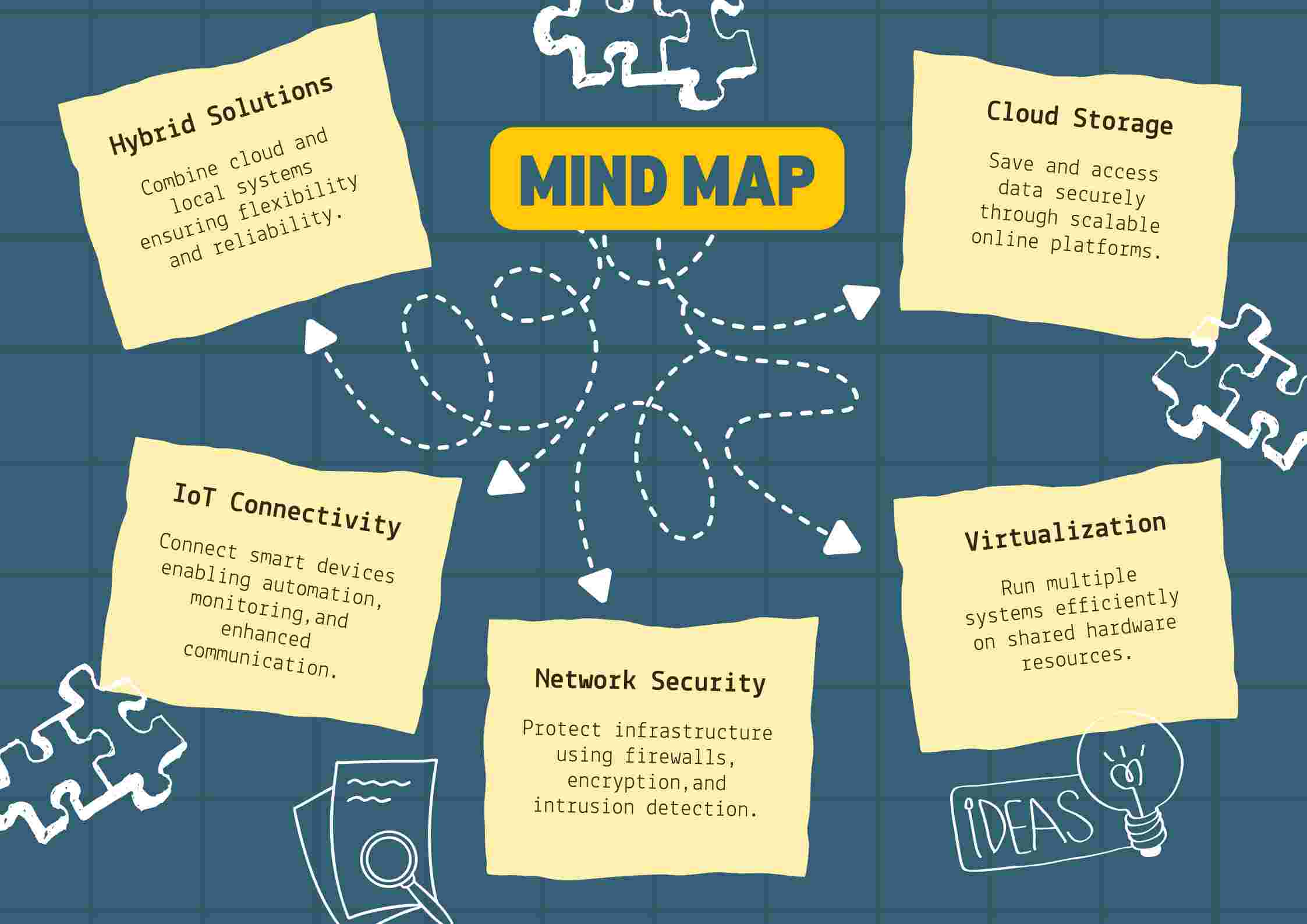In the era of digital transformation, virtual businesses have redefined the meaning of entrepreneurship. The ability to operate entirely online, collaborate with global teams, and deliver services remotely has opened limitless opportunities. Whether your expertise lies in IT services, digital marketing, software development, or content creation, there’s a scalable business model waiting to be built.
This blog explores the most profitable virtual business ideas and provides insights on how to build, manage, and grow a remote team that delivers consistent results for clients worldwide.
Why Virtual Business Is the Future
The modern business world has embraced flexibility and remote collaboration as the new normal. Virtual business models provide scalability, cost-efficiency, and resilience.
Key Benefits of Virtual Businesses
- Lower operational costs: No rent or utility expenses for physical offices.
- Global talent access: Work with professionals from any part of the world.
- Scalability: Easily expand teams based on demand.
- 24/7 productivity: Multi-time-zone operations mean continuous workflow.
- Crisis resilience: Remote teams keep your business running under any circumstances.
As cloud computing and digital tools continue to evolve, the demand for virtual operations will only grow stronger.
1. IT Support and Managed Services
Many small and medium enterprises (SMEs) outsource their technical needs to remote IT specialists. Starting an IT support and managed services business is one of the most reliable virtual opportunities today.
Services to Offer:
- Cloud setup and maintenance
- Cybersecurity and data protection
- Remote helpdesk and troubleshooting
- Network management and server optimization
- Backup and disaster recovery
Tools and Platforms:
TeamViewer, AnyDesk, Zendesk, SolarWinds, and Datadog.
Revenue Model:
Offer subscription-based maintenance packages or per-ticket support pricing for steady monthly income.
2. Web and App Development Agency
Every business needs a functional, attractive website or app. Launching a virtual development agency allows you to serve clients globally without physical limitations.
Services Include:
- Web design and development (WordPress, Shopify, React)
- Mobile app creation (Android, iOS, Flutter)
- UI/UX design and optimization
- Maintenance and SEO integration
Team Setup:
Frontend and backend developers, UI/UX designer, QA tester, and project manager.
Collaboration Tools:
GitHub, Figma, Trello, and Slack for project coordination and version control.
3. Digital Marketing Agency
The online advertising industry is booming, making a digital marketing agency one of the most profitable virtual businesses.
Core Services:
- SEO and content marketing
- Social media management
- Google Ads and PPC campaigns
- Email marketing automation
- Influencer outreach and brand reputation
Recommended Tools:
Google Analytics, HubSpot, Buffer, SEMrush, and Hootsuite.
Growth Tip:
Start by targeting a specific niche (e.g., real estate, healthcare, or eCommerce) before expanding your portfolio.
4. Content Creation and Media Production Studio
Content drives engagement and brand growth. A virtual content creation agency can deliver writing, video, and design solutions to global clients.
Services to Offer:
- Blog writing and ghostwriting
- YouTube video editing and post-production
- Podcast editing and transcription
- Graphic design and animation
- Social media content planning
Team Roles:
Content strategist, writers, editors, video editors, and graphic designers.
Monetization Options:
Charge per project, create monthly retainers, or build long-term content partnerships.
5. Software Development and SaaS Startup
Software powers the modern business world. Starting a software development company or launching a SaaS product can bring recurring revenue and high scalability.
Focus Areas:
- Custom business apps
- Cloud-based project management tools
- CRM systems
- AI-driven automation and analytics
Team Composition:
Software engineers, UI/UX designers, QA testers, DevOps specialists, and a product manager.
Tip:
Use agile methodologies and cloud-based CI/CD pipelines to maintain continuous innovation.
6. Virtual IT Consultancy
A virtual IT consultancy helps companies streamline their digital infrastructure and make informed technology decisions.
Consulting Areas:
- Cloud migration and optimization
- Cybersecurity assessments
- Data analytics implementation
- Process automation and AI integration
Revenue Model:
Offer hourly consultation packages or long-term digital transformation contracts.
7. E-Learning and Online Course Creation
With global demand for online education, launching a virtual e-learning platform is a lucrative idea.
Business Models:
- Create and sell online courses (IT, coding, marketing, etc.)
- Offer live tutoring or coaching sessions
- Build white-label LMS platforms for institutions
Useful Platforms:
Teachable, Thinkific, Kajabi, or custom WordPress LMS setups.
8. Virtual Assistant and Business Support Services
Entrepreneurs and corporations are constantly seeking virtual assistants (VAs) to manage their day-to-day administrative work.
Services Include:
- Email and calendar management
- Data entry and lead generation
- Customer support and chat assistance
- Appointment scheduling
How to Scale:
Build a team of trained VAs and specialize in a niche… for instance, real estate, eCommerce, or executive assistance.
9. Cloud Solutions and DevOps Services
Cloud migration and DevOps automation are in high demand. A virtual cloud consultancy can manage infrastructure for clients using AWS, Azure, or Google Cloud.
Services:
- Cloud architecture design
- Serverless app deployment
- Infrastructure as code (IaC) setup
- Performance tuning and automation
Team Needs:
Cloud engineers, DevOps specialists, and system administrators.
10. AI and Automation Consulting
Artificial Intelligence is the next big frontier. A virtual AI consultancy can develop and deploy automation tools for businesses.
Ideas to Explore:
- Chatbots and customer service automation
- Predictive data analytics
- AI-based workflow optimization
- Image and voice recognition tools
Industries to Target:
Healthcare, finance, logistics, and retail… all rapidly adopting AI solutions.
How to Build and Manage a Virtual Team
1. Recruit Global Talent
Hire professionals who are independent, proactive, and comfortable with remote collaboration. Platforms like Upwork, Fiverr, and LinkedIn make finding experts easy.
2. Set Up Clear Communication
Use Slack, Microsoft Teams, or Zoom for daily check-ins and transparent communication.
3. Establish Workflows and Accountability
Define roles, deadlines, and performance metrics. Tools like Asana or ClickUp can help streamline project tracking.
4. Foster Team Culture
Schedule virtual meetups, celebrate milestones, and recognize achievements. A strong culture ensures loyalty and motivation even in remote setups.
5. Automate Repetitive Tasks
Leverage automation tools for billing, time tracking, and report generation to save time and reduce manual errors.
Monetization Models for Virtual Businesses
You can choose from multiple income streams:
- Subscription Model: Monthly or annual plans for ongoing services.
- Project-Based Pricing: Ideal for design, marketing, or software projects.
- Retainer Model: Clients pay for guaranteed availability.
- Affiliate Income: Partner with SaaS or tool providers for commissions.
- Licensing and White-Labeling: License your tools or services under other brands.
Diversifying revenue streams ensures business stability and long-term sustainability.
Challenges of Running a Virtual Business
While virtual operations offer freedom, they also come with challenges:
- Time-zone coordination issues
- Maintaining team motivation remotely
- Cybersecurity and data privacy risks
- Client trust and communication barriers
Solutions:
Use overlapping work hours, secure data-sharing systems, and transparent client reporting to maintain trust and performance.
Future Outlook for Virtual Businesses
The future of entrepreneurship is borderless. By 2030, experts predict that more than 60% of companies will operate fully remotely or in hybrid formats. Businesses that invest in digital systems, AI, and automation now will stay ahead of the competition.
For investors, this trend signals an opportunity to fund scalable, low-overhead ventures with global reach. For entrepreneurs, it’s a call to innovate… and to think beyond borders.
Virtual businesses are the cornerstone of the modern digital economy. Whether in IT, marketing, content, or software, each model offers flexibility, scalability, and global opportunity. By building a skilled remote team and using the right digital tools, you can create a business that operates efficiently and sustainably across borders.
The virtual era has already begun… the question is, are you ready to lead it?



